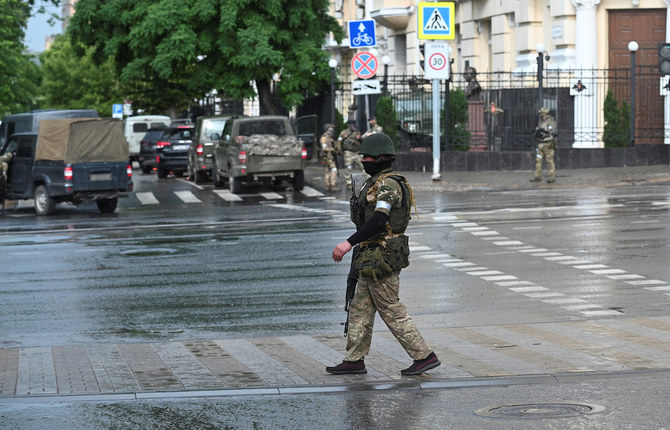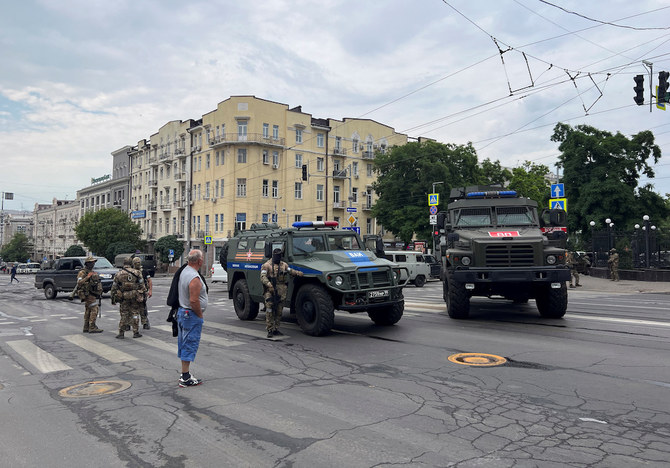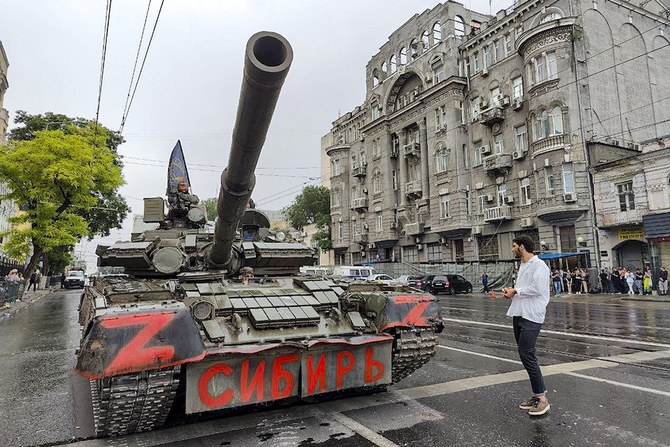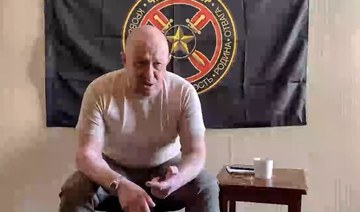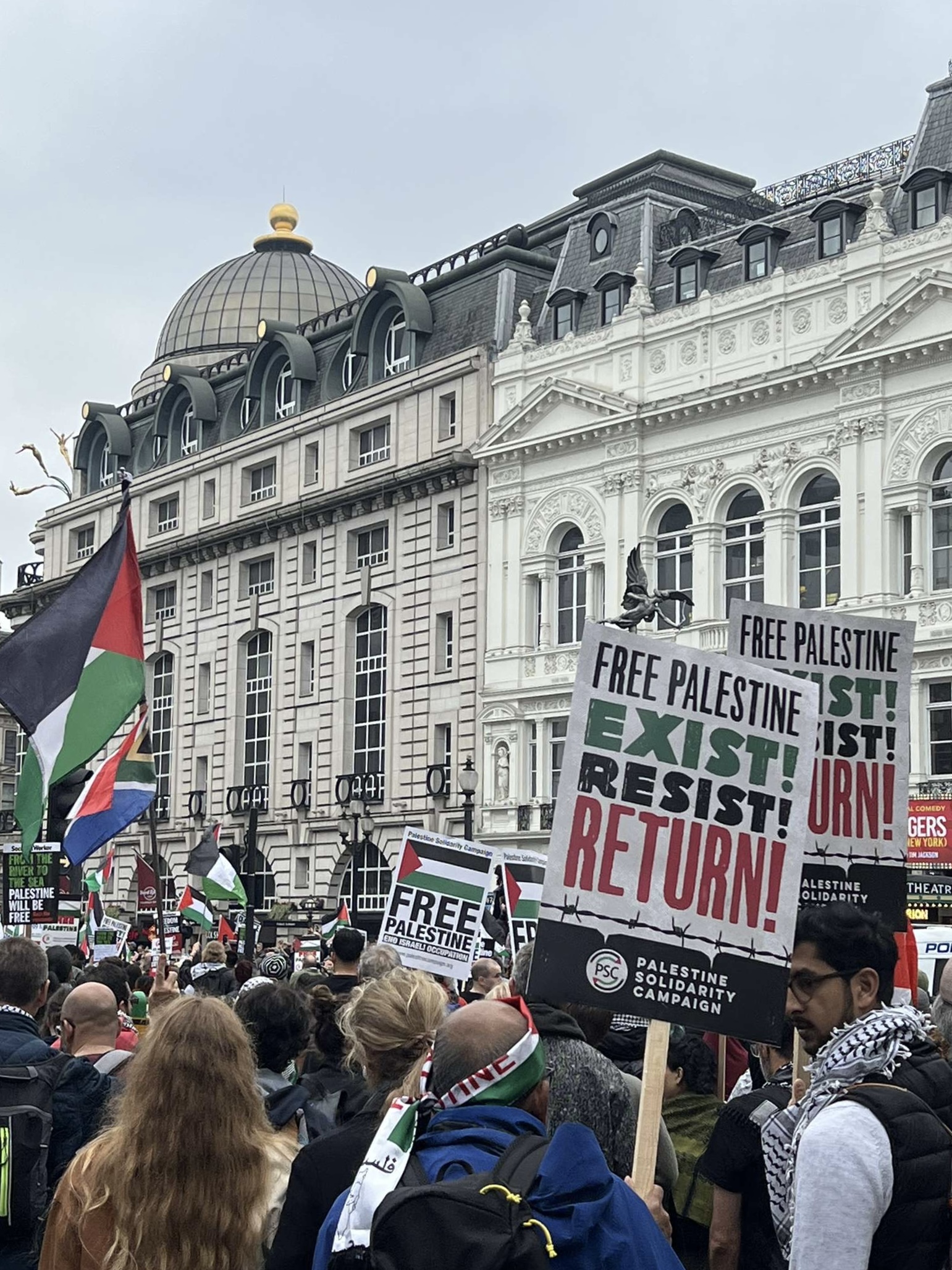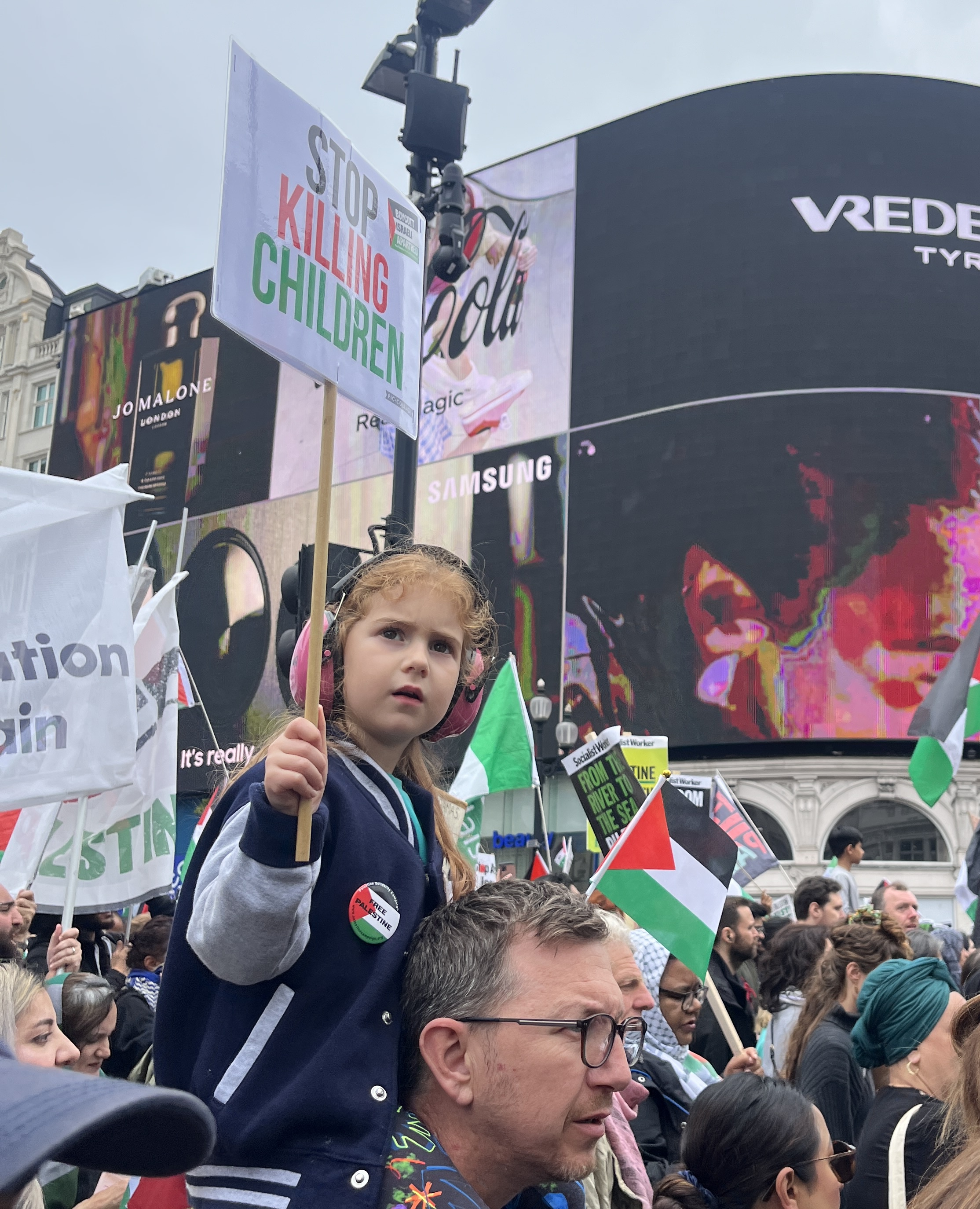MOSCOW: Heavily armed Russian mercenaries who advanced most of the way to Moscow began turning back on Saturday, de-escalating a major challenge to President Vladimir Putin’s grip on power, in a move their leader said would avoid bloodshed.
Yevgeny Prigozhin, a former Putin ally and founder of the Wagner army, said his men reached within 125 miles (200 km) of the capital. Earlier, Moscow deployed soldiers in preparation for their arrival and told residents to avoid going out.
The Wagner fighters captured the city of Rostov hundreds of miles to the south before racing in convoy through the country, transporting tanks and armored trucks and smashing through barricades set up to stop them, video showed.
On Saturday night, Wagner fighters loaded tanks on trailers and began withdrawing from the Rostov military headquarters they had seized, a Reuters witness said.
“In 24 hours we got to within 200 km of Moscow. In this time we did not spill a single drop of our fighters’ blood,” Prigozhin, dressed in full combat uniform at an undisclosed location, said in a video.
“Understanding ... that Russian blood will be spilled on one side, we are turning our columns around and going back to field camps as planned.”
Reuters could not independently verify how far Prigozhin’s mercenaries had reached. Video earlier showed convoys of Wagner vehicles less than 310 miles (500 km) from Moscow.
The office of Alexander Lukashenko said the decision to halt further movement of Wagner fighters across Russia was brokered by the Belarusian President, with Putin’s approval, in return for guarantees for their safety.
His office did not give further details. There was no immediate word from Putin on the apparent deal.
Wagner’s lightning insurrection appeared to develop with little pushback from Russia’s regular armed forces, raising questions about Putin’s grip on power in the nuclear-armed nation even after the abrupt halt to Wagner’s advance.
Earlier, Prigozhin said that what he called a “march for justice” was intended to remove corrupt and incompetent Russian commanders he blames for botching the war in Ukraine.
In a televised address from the Kremlin, Putin earlier said the Wagner rebellion put Russia’s very existence under threat.
“We are fighting for the lives and security of our people, for our sovereignty and independence, for the right to remain Russia, a state with a thousand-year history,” he said, vowing punishment for those who “who prepared an armed insurrection.”
Ukrainian President Volodymyr Zelensky said the Wagner revolt, which sparked a flurry of high-level calls between Western leaders, exposed chaos in Russia.
“Today the world can see that the masters of Russia control nothing. And that means nothing. Simply complete chaos. An absence of any predictability,” Zelensky said in his nightly video address.
Video obtained by Reuters showed troop carriers and two flatbed trucks each carrying a tank driving 30 miles (50 km) beyond the town of Voronezh, more than half way to Moscow.
A helicopter fired on them near Voronezh, where a fuel depot exploded in a fireball shortly after a helicopter flew by, video footage obtained by Reuters showed.
WILL THERE BE CIVIL WAR?
The fighters led by Prigozhin, a former convict, include thousands of ex-prisoners recruited from Russian jails.
His men fought the bloodiest battles of the 16-month Ukraine war, including the protracted battle for the eastern city of Bakhmut. He railed for months against the regular army’s top brass, accusing generals of incompetence and of withholding ammunition from his fighters.
This month, he defied orders to sign a contract placing his troops under Defense Ministry command.
He launched the apparent mutiny on Friday after alleging that the military had killed many of his fighters in an air strike. The Defense Ministry denied this.
He said he had captured the headquarters of Russia’s Southern Military District without firing a shot in Rostov, which serves as the main rear logistical hub for Russia’s entire invasion force in Ukraine.
Residents of the city had milled about calmly, filming on mobile phones as Wagner fighters in armored vehicles and battle tanks took up positions.
One tank was wedged between stucco buildings with posters advertising a circus. Another had “Siberia” daubed in red paint across the front, an apparent statement of intent to sweep across the breadth of Russia.
“Will there be civil war?” a woman in Rostov asked the mercenaries. “No, everything will be fine,” one answered.
The region surrounding Rostov is an important oil, gas and grains hub.
In a series of hectic messages overnight, Prigozhin had demanded that Defense Minister Sergei Shoigu and the chief of the general staff Valery Gerasimov should come to see him in Rostov.
UKRAINE ATTACKS NEAR BAKHMUT
Western capitals said they were closely following the situation in nuclear-armed Russia. US President Joe Biden spoke with the leaders of France, Germany and Britain, while Secretary of State Antony Blinken spoke to G7 counterparts.
The top US military officer, Army General Mark Milley, canceled a scheduled trip to the Middle East because of the situation in Russia.
“This represents the most significant challenge to the Russian state in recent times,” Britain’s defense ministry said.
The insurrection risked leaving Russia’s invasion force in Ukraine in disarray, just as Kyiv is launching its strongest counteroffensive since the war began in February last year.
Ukraine’s military said on Saturday its forces made advances near Bakhmut, on the eastern front, and in an area further south.
Deputy Defense Minister Hanna Maliar, writing on Telegram, said an offensive was launched near a group of villages ringing Bakhmut, which was taken by Wagner forces in May after months of fighting.
“In all these areas, we have made advances,” Maliar wrote.
Oleksandr Tarnavskiy, commander of the southern front, said Ukrainian forces had liberated an area near Krasnohorivka, west of the Russian-held regional center of Donetsk.
He said the area had been under Russian control since separatist forces backed by Moscow took control of it in 2014.


